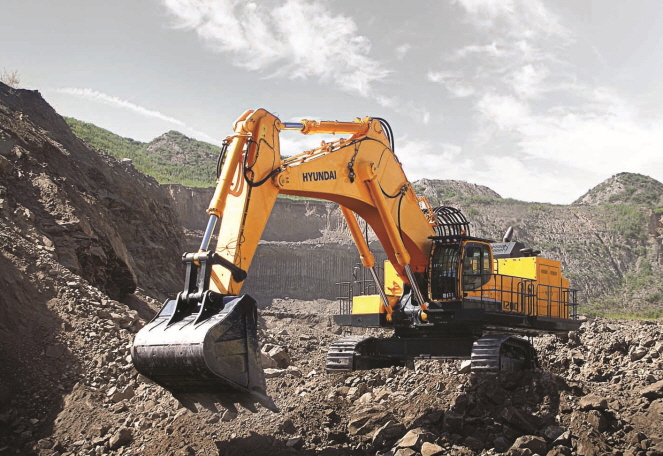Hyundai digs hydrogen
- PostedPublished 27 March 2020
Three divisions of South Korea’s giant Hyundai conglomerate have forged an agreement to co-develop hydrogen-powered excavators and forklifts.
Hyundai Motor, Hyundai Construction Equipment and Hyundai Mobis (the group’s parts division) will develop forklifts this year, followed by an excavator prototype that should be ready in 2021.
The equipment is expected to reach the market by 2023, which if successful, will earn the Hyundai consortium the title of world’s first hydrogen-powered construction vehicle manufacturers.

Hyundai Motor will be responsible for designing and testing of the “hydrogen battery” system while design of the new forklifts and excavators will fall to Hyundai Construction Equipment, which will also carry out “comprehensive assessments” on the new prototypes.
By developing core technologies in advance, the Hyundai consortium aims to create “a global standard for commercial hydrogen-powered construction vehicles”.
It will also no doubt help achieve economies of scale for Hyundai Motor’s hydrogen-fuelled road-going vehicles as Hyundai Construction Equipment has 540 dealerships across 140 countries.
Beer, wine, hydrogen
COLD beer as a reward for hard yakka is an age-old concept, but sinking a cold one could soon contribute to the fuel used in hydrogen-powered vehicles and heavy equipment.
It is an idea dreamed up by three chemical engineering graduates from the University of New South Wales, who have invented a way of converting wastewater from breweries, distilleries or wineries into hydrogen.
Major breweries have already invested heavily in solar to power their operations, but some of this electricity could be tapped to electrolyse waste water into hydrogen that can be used as energy storage or sold off to power vehicles such as and forklifts (see article on left) or heavy trucks (see article on right).
The co-founders of start-up ‘switchH2’ claim their process differs because it can produce hydrogen from contaminated water, due to the use of a catalyst.
In addition to overcoming the controversial use of clean water for hydrogen production, the technology is ideally paired to the liquor industry as it is both energy and water intensive.
As a result, the switchH2 system could reduce operating costs and boost profits for liquor producers while reducing their environmental footprint.
The company claims a 5MW electrolyser could treat of up to 4 million litres of brewery wastewater, producing enough hydrogen to save as much as $1.1 million on electricity while mitigating up to 3,000 tonnes of carbon dioxide emissions.
We’ll drink to that.
Warrnambool hydrogen hub
THE Warrnambool campus of Deakin University will become home to a Hydrogen Transition Centre that aims to develop hydrogen fuel cell drivetrains for heavy truck in partnership with Kenworth.
Specialists in fuel cells, electric vehicles and gas distribution are also involved in the project that will initially create 12 professional roles in the southwest Victorian town, with around 200 full-time jobs once fully established.
Named HyceL@Warrnambool, the $20 million research and testing site will be an Australian first and has been awarded $2m in federal government funding.
Deakin Vice-Chancellor Iain Martin said the technologies developed at Hycel “could be used by Kenworth trucks made here in Australia, as well as those made internationally by Kenworth’s parent company PACCAR”.
“The technologies can also be applied to other heavy vehicles, such as buses, including those operated by Warrnambool Bus Lines,” added Professor Martin.
Hydrogen fuel-cells produce electricity from hydrogen and oxygen, with pure water the only tailpipe emission.
The Hycel centre will test how fuel-cells can work together with electric vehicle technologies, enabling an electric truck to create its own power while driving, avoiding the need for frequent stops and battery charging infrastructure.
In addition, the centre will also test hydrogen safety and distribution, including the possibility of using existing natural gas pipes to transport hydrogen.
- CategoriesIn SightGlass
- TagsHydrogen, hydrogen fuel cell, SightGlass News Issue 19

